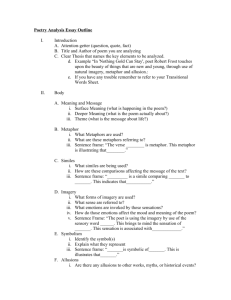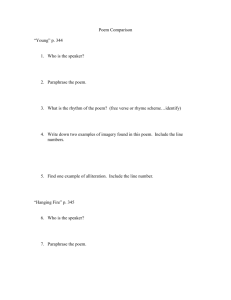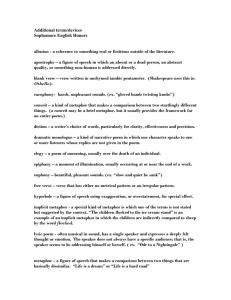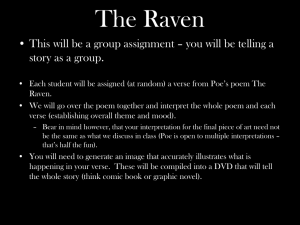Literary Terms2sam
advertisement
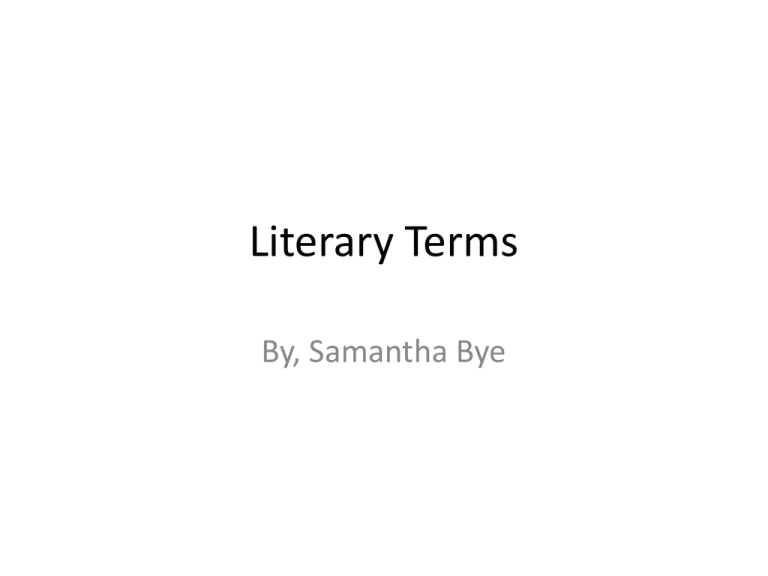
Literary Terms By, Samantha Bye Alliteration • The repetition of initial consonant sounds. • “Casey at the Bat” by Ernest Lawrence Thayer on page 42. • “Casey at the Bat” has a lot of alliteration for example day and play, rest, breast. Blank Verse • Poetry written in unrhymed iambic pentameter lines. • Romeo and Juliet which is on page 801, where blank verse was used. And it is written by William Shakespeare. • Blank verse is used in Romeo and Juliet when Romeo is speaking, “Than twenty of their swords! Look thou but sweet.” Dialect • The form of language spoken by people in a particular region or group. • Dialect was used in “The Invalid’s Story” on page 596. Which was written by Mark Twain. • “Friends of yourn?” • “Yes,” I said with a sigh. • “He’s pretty ripe, ain’t he!” Extended Metaphor • A writer speaks or writes of a subject as though it were something else. An extended metaphor sustains the comparison for several lines or for an entire poem. • The “Caged Bird” of Paul Laurence Dunbar’s “sympathy” which is found on page 292. • It is an extended metaphor for a person who is not free. Imagery • The descriptive or figurative language used in literature to create word pictures for the reader. • Imagery is used in Single Room, Earth View on page 637. • In Single Room, Earth View Sally Ride expresses imagery on what she saw from space. Meter • The meter of a poem is its rhythmical pattern. • “I Wandered Lonely as a Cloud” by William Wordsworth on page 896. • “I wandered Lonely as a Cloud” has good meter. Narrative Poem • One that tells a story. • “The Raven” by Edgar Allan Poe, on page 940. • “The Raven” is a serious narrative poem. Protagonist • The main character in a literary work. • In These Girls, Hope is a Muscle by Steve Gietschier on page 715. • The protagonist in this story is Madeleine Blais. Speaker • The imaginary voice assumed by the writer of a poem. • “The Eagle” by Alfred, Lord Tennyson on page 906. • The imaginary voice would be the eagle.





